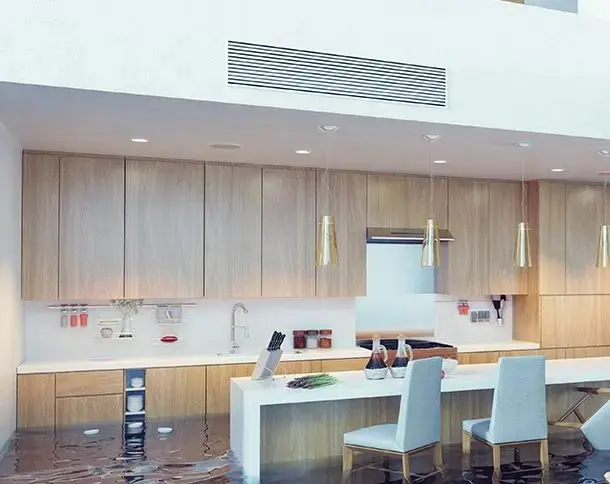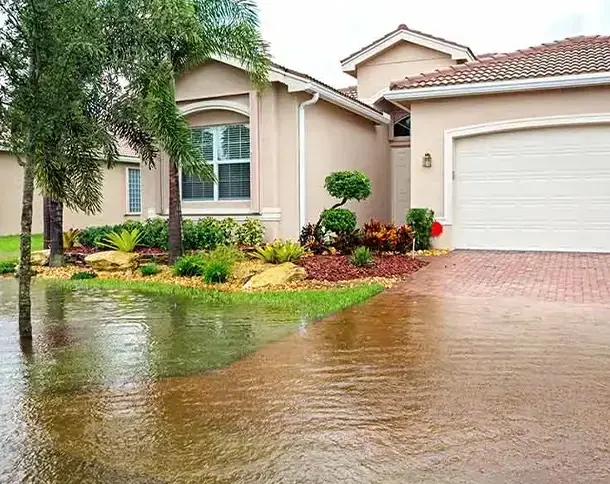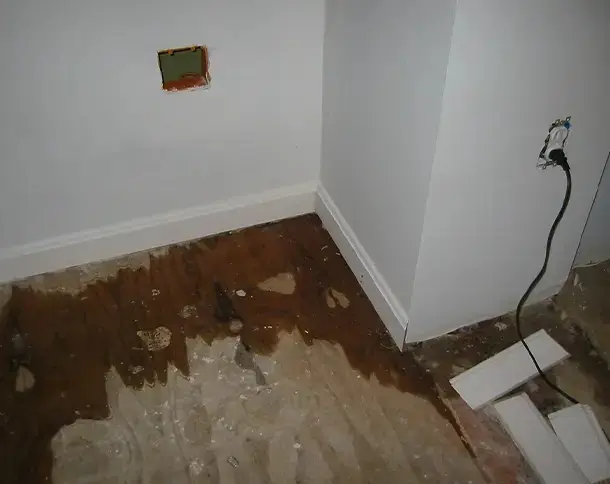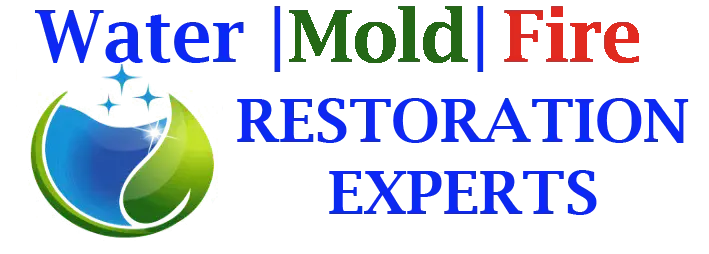Water Damage Restoration
North Bergen New Jersey

Comprehensive Guide to Water Damage Restoration: Protect, Prevent, and Restore
Water damage is a significant concern for homeowners and businesses alike. It can result from various sources, including natural disasters, plumbing problems, or appliance malfunctions. Regardless of the source, water damage can have severe consequences on the property's structure and the health of its occupants. We will delve into the different types of water damage, the effects of water damage, and how to prevent it.
Types of Water Damage
Water damage can be classified into three categories, based on the severity of the damage and the level of contamination.
Clean Water Damage: Clean water damage is caused by water from a clean source, such as a broken pipe, faucet, or rainwater. This type of damage is relatively harmless and can be easily remedied if caught early.
Grey Water Damage: Grey water damage is caused by water from sources that contain some level of contamination, such as washing machine overflow or dishwasher malfunction. This type of water can cause illness if ingested and requires immediate attention.
Black Water Damage: Black water damage is the most severe type of water damage and is caused by water from sources that contain harmful bacteria and viruses, such as sewage backup or flooding. This type of damage requires professional cleanup and can pose significant health risks to occupants.
Effects of Water Damage
Water damage can have various effects on a property and its occupants, including:
Structural Damage: Water damage can weaken a building's structure, leading to rot, mold, and mildew growth. This can result in the need for expensive repairs or even a complete rebuild.
Health Risks: Exposure to water damaged areas can cause health risks such as respiratory problems, allergies, and infections.
Financial Loss: Water damage can result in financial losses due to property damage, repair costs, and temporary relocation expenses.
Preventing Water Damage
Preventing water damage is crucial to avoid the potential risks and costs associated with it. Here are some tips to prevent water damage:
Regular Maintenance: Regular maintenance of plumbing, appliances, and roofing can help prevent water damage. It is essential to inspect these areas regularly and address any issues promptly.
Proper Insulation: Proper insulation can help prevent water damage caused by freezing pipes. Insulating pipes and crawl spaces can prevent them from freezing during cold weather.
Proper Drainage: Proper drainage around the property can prevent water from accumulating near the foundation, which can lead to water damage.
Water damage can have severe consequences on a property and its occupants. Understanding the types of water damage, the effects, and how to prevent it can help homeowners and businesses avoid potential risks and costs associated with it. Contact us today if you are in need of our water damage restoration services. We service the greater North Bergen New Jersey area.
Causes of Water Damage:
There are many potential causes of water damage. Some of the most common include:
1. Leaking or burst pipes
2. Heavy rains or storms
3. Faulty appliances or plumbing fixtures
4. Overflowing toilets or sinks
5. Sewage backups
6. Foundation cracks
7. Flooding
For many, an unexpected water damage event can be a traumatic and stressful experience–especially when they don't know what to do. Professional water damage restoration companies like ours provide the expertise of trained professionals who oversee every aspect of the drying process, from assessing the damages and removing the moisture to guaranteeing that your home or business is covered in time for you to use it again.
Flood Restoration

The Role of Professionals in Water Damage Restoration
In cases of severe water damage or contamination, it's crucial to enlist the help of professionals. We have the expertise, equipment, and training to safely and effectively restore your property to its pre-damaged state.
Water Damage Restoration: Step-by-Step Guide
Step 1: Assess the Damage
Evaluate the extent of the damage by identifying the source, the type of water, and the affected areas. This information will guide your restoration efforts and help determine if professional assistance is needed.
Step 2: Stop the Water Source
Shut off the water supply or address the source of the leak to prevent further damage.
Step 3: Remove Excess Water
Use wet vacuums, mops, or towels to remove standing water from the affected area.
Step 4: Dry and Dehumidify
Set up fans, dehumidifiers, and open windows to speed up the drying process and prevent mold growth.
Step 5: Clean and Sanitize
Thoroughly clean and sanitize all affected surfaces, paying special attention to areas with grey or black water damage. This may involve the use of specialized cleaning agents and equipment.
Step 6: Restoration and Repair
Repair or replace damaged materials, such as drywall, flooring, and insulation. This may involve minor fixes or more extensive reconstruction, depending on the extent of the damage.
Free Estimates
All insurances Accepted
30 minute response time
How We Handle Flooded Areas:
Flooded areas can pose a serious threat to both people and property. If not properly handled, they can lead to extensive damage and even loss of life. That's why it's important to call in a professional when you're dealing with a flooded area.
We have the experience and expertise to safely and effectively remove water from all types of terrain. We use the latest technology and equipment to quickly pump out water and dry out the area. We also take care to prevent further damage by using proper containment and disposal methods.
If you're dealing with a flooded area, don't hesitate to give us a call. We'll be there quickly to help you get your property back to normal.
Top-Quality Water Damage Restoration Services: Your Best Solution for a Safe and Healthy Home

Comprehensive Water Damage Restoration Process
1. Emergency Response and Inspection
Our team of certified professionals is available 24/7 to respond to your water damage emergency. Upon arrival, we conduct a thorough inspection to assess the severity of the damage and determine the best course of action.
2. Water Extraction and Removal
We use state-of-the-art equipment to quickly and efficiently remove standing water and excess moisture from your property. Our advanced extraction techniques minimize the risk of secondary damage and mold growth.
3. Drying and Dehumidification
Our industrial-grade dehumidifiers and air movers work together to dry out your home, preventing further damage and ensuring a safe living environment.
4. Cleaning and Sanitizing
We thoroughly clean and sanitize affected surfaces using EPA-approved antimicrobial treatments, eliminating any potential health hazards and odors associated with water damage.
5. Restoration and Repair
Our skilled craftsmen work diligently to restore your home to its pre-loss condition. We handle everything from minor repairs to extensive reconstruction, ensuring your complete satisfaction.
Cleaning and Decontamination
Our team meticulously cleans and decontaminates affected areas, removing all traces of mold and ensuring your home is safe and healthy for you and your family.
Preventative Measures and Maintenance
We provide guidance on preventative measures to minimize the risk of future mold growth. Our maintenance services ensure your home remains mold-free, giving you peace of mind.
What You Should Do If You Have Water Damage:
If you have water damage, the first thing you should do is call a professional. Water damage can be very tricky to clean up on your own, and it’s important to get it done right so that mold doesn’t have a chance to set in.
Once the professionals are on their way, you should start thinking about what you can do to salvage any of your personal belongings. If the water damage is extensive, it’s likely that anything that was touching the ground will be a total loss. However, if the water damage is limited to one area, you may be able to save some of your belongings.
Start by taking any clothes or fabric items out of the affected area and hanging them up to dry. If possible, put them in the sun as UV rays will help kill any mold or mildew that may be starting to grow. Next, focus on any electronics that may have been damaged. If they were submerged in water, they are likely beyond repair. However, if they were only exposed to moisture, you may be able to salvage them by taking them apart and drying them out thoroughly before putting them back together again.
Last but not least, don’t forget about your documents and photos! Water can ruin these irreplaceable items very quickly, so it’s important to act fast. If possible, scan all important documents and save them electronically so that you always have a backup. For photos, try to rescue them as soon as possible and dry them off gently before putting them in a safe, dry place.
What Types of Water Damage do we Repair?
There are many different types of water damage, and each type requires a different method of repair. The most common types of water damage are:
-Leaks: Leaks can occur in any part of your home, from the roof to the foundation. They can be caused by faulty plumbing, bad weather, or even a leaky dishwasher.
-Flooding: Flooding can occur inside your home or outside, depending on the source. Flooding is often caused by heavy rains, broken pipes, or faulty sump pumps.
-Drying/Dehumidification: Drying and dehumidification are necessary after any water damage event to prevent mold growth. This can be done with industrial fans and dehumidifiers.
-Mold Remediation: Mold remediation is necessary when mold growth has occurred as a result of water damage. Mold removal and remediation can be a complex process, so it is best to hire a professional if you suspect mold growth in your home.
The Importance of Mold Prevention and Removal:
Mold is a serious issue that can cause health problems for you and your family. Mold can cause respiratory problems, skin irritation, and other allergic reactions. If you have mold in your home, it is important to remove it as soon as possible.
There are many ways to prevent mold from growing in your home. Some of these include:
-Keep your home clean and free of clutter.
-Fix any leaks or moisture problems immediately.
-Ventilate humid areas such as kitchens and bathrooms.
-Use an air conditioner or dehumidifier to reduce humidity levels.
If you already have mold in your home, it is important to remove it safely. You can do this yourself with some bleach and water, but it is best to hire a professional if the infestation is large or if you have health concerns.
If you have any questions about our water damage restoration service, please don't hesitate to contact us. We are always happy to help in any way we can. We service the greater North Bergen New Jersey area.
